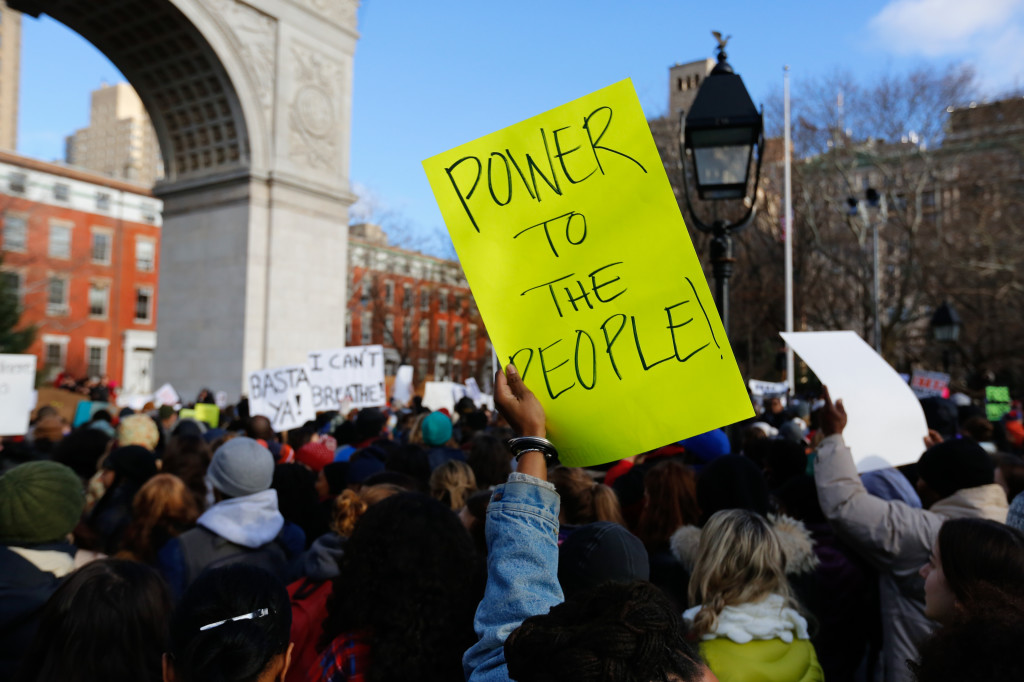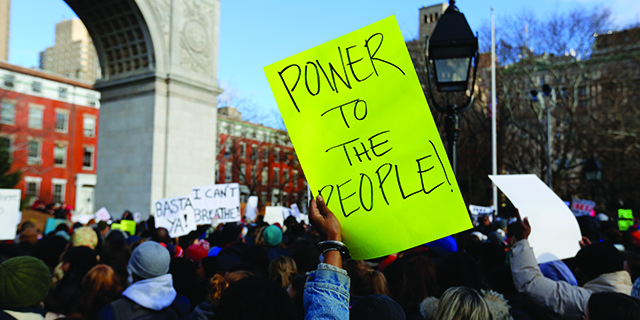
In recent weeks, members of the Fieldston community have come together to discuss, process, and protest the recent grand jury decisions in the cases of Eric Garner and Michael Brown. There have been teachers leading breakout sessions, students giving speeches, and alumni protesting, but throughout all of this a very important voice is missing- that of the parents. As vital and wise members of the ECFS community, their perception of these events is helpful to gaining a deeper understanding on what has been happening and how the community can make a difference. In a place as diverse as Fieldston there is obviously a wide range of beliefs and views.
Several parents from the ECFS community were interviewed. Some parents felt that these two cases were a clear illustration of our damaged criminal justice system, manifesting itself through its reluctance to indict cops.
Kim Emile, a Fieldston alum and mother of a 7th and 6th grader said as a country and a city we are in a pretty bad place in terms of the legal justice system.
Howard Ravikoff, a father of an 7th and 5th grader had a different opinion.
“We live in a society where we need to respect the decisions of the court,” he said.
Parents made a clear distinction between these two cases. In regards to the Eric Garner case, Diane Wallach, a mother of 10th grader, affirmed, “they have a clear video showing that he didn’t resist arrest and I can’t understand how they cannot prosecute something that nobody can dispute.” Kim Emile reiterated this, “we all saw it happen.” As far as Ferguson, Robert LoGiudice, a father of a 10th grader said, “there are so many different stories and nobody saw what happened.”
The parents interviewed said that while these particular cases are deeply upsetting, these types of incidents are not unusual. When asked the question of why they thought these specific cases produced such national reactions, they explained their views. Most parents interviewed felt that these cases were part of a long pattern of police discrimination and brutality against young black men.
“This has been happening to brown boys,” Wallach said, “and after years of being mistreated, it was the straw that broke the camel’s back.”
Yet, others felt that these two cases’ close proximity in time to each other is what sparked the powerful reactions.
Some parents supported how the Ethical Culture community has been handling the issues surrounding these deaths.
“I found it amazing that the administration supported the march,” Emile said. “I was so happy to march with my community and I think Felix Adler would have been proud. ‘Injustice to some is injustice to all.’”
Others disagreed with the school’s official response.
“I don’t agree with their leading a group of people that went to the march,” Ravikoff said. “There is a huge difference between taking a leadership role and supporting something that comes from the community.”
Parents were asked about their conversations with their children concerning the police, and many have had discussions with their children about what to do if they encounter a cop. Most parents of kids of color felt it was necessary to help their children learn how to manage any possible encounter with a policeman.
Francesca Thomas, a mother of three, explained that she feels it is crucial for her children to only provide minimal information without an attorney present.
Many parents acknowledge that these ongoing discussions have been a painful conversation. After recent events, the dialogues about cops within families of color have not altered.
In asking about what the Fieldston community and communities committed to change around the world can do, parents felt that bringing about change will require altered and improved education for the police and a greater sense of community policing. One parent said that “people simply need to treat others as humans, not animals.”
Parents of color, parents of kids of color, and white parents all expressed that these two deaths are only a few examples of the nationwide issue that has a more complex, more racist, and more systematic narrative.
“I am trying to raise my son with as much optimism as possible,” Emile said, “but I need to provide him with the reality that he needs to survive.”






